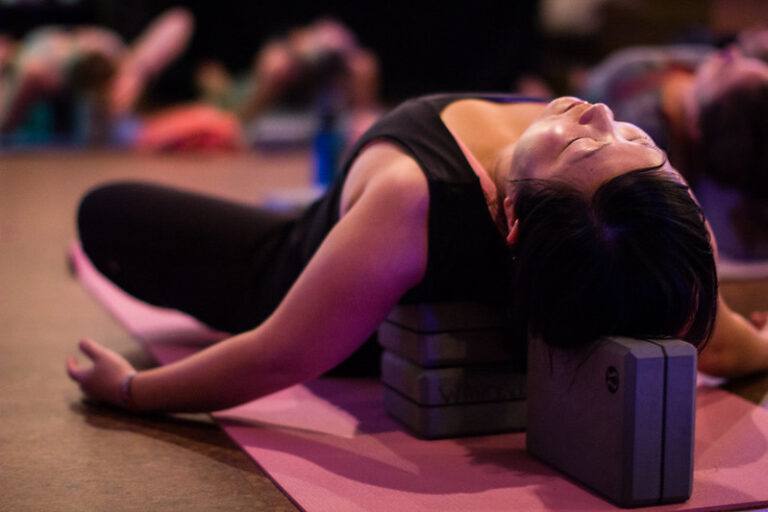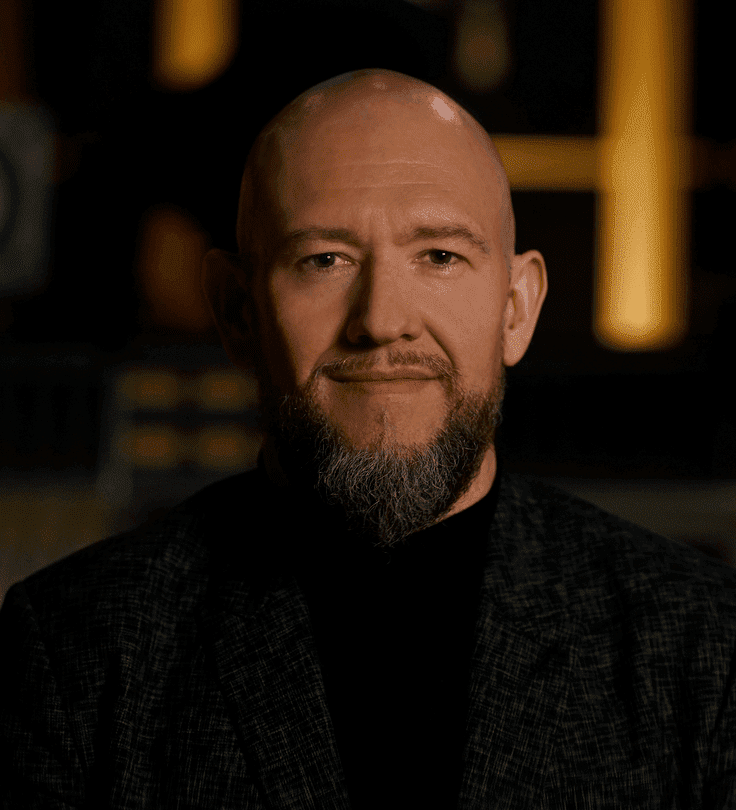Tom Middleton is a pioneering electronic musician, DJ-producer, sleep coach and creator of science-backed music for health, wellness, motivation, focus, relaxation and sleep. He’s a Functional Music creator for Calm and Breathonics, a Sleep Science Coach, and certified in Mental Health First Aid. Watch his Wanderlust TV debut with Richie Bostock celebrates World Sleep Day on Friday March 19, 2021.
Sleep is the foundational pillar of mental, physical, and emotional health and wellbeing. We spend a third of our lives sleeping, and it’s an evolutionary adaptation to naturally reset the mind, allowing our brains to recover, repair, and rebuild our bodies whilst boosting the immune system. It’s absolutely crucial for peak performance.
The world is experiencing prolonged periods of chronic stress, resulting in mental health issues, with anxiety, stress, burnout, depression, and sleep loss on the rise.
This is being triggered by uncertainty, scarcity, fear, disconnection, isolation and worry.
It’s an evolutionary response to potential danger, known as the fight-or-flight response, but many of us have been in this state since March.
The fight-or-flight response triggers the body to release cortisol and adrenaline, which increases heart rate, breathing rate, and blood pressure. We can deal with short bursts of these hormones (eustress; such as exercise), but if prolonged, we begin experiencing all the negative side effects of this distress. Even reading a news headline can trigger this mechanism, and with screen addiction increasing, it’s almost unavoidable. We need simple, self-care tips and techniques to reduce anxiety, to calm, ground, and relax us, and help us to sleep well.
 1) Routine and ritual: Establish regular wake and sleep times with reminders — aim for at least 7.5 hours. Each person has different sleep needs depending on their chronotype. Create your own relaxing pre-sleep ritual. Try gentle yoga or meditation with candles or incense.
1) Routine and ritual: Establish regular wake and sleep times with reminders — aim for at least 7.5 hours. Each person has different sleep needs depending on their chronotype. Create your own relaxing pre-sleep ritual. Try gentle yoga or meditation with candles or incense.
2) Daylight: Walk outside in daylight (no shades!) for 20 mins in the morning to reset the body clock.
3) Movement: Take standing breaks if you sit a lot. Likewise, it’s unwise to exercise too close to bedtime.
4) Diet: Eat light at night, two to three hours before bedtime. Be aware spice food may stimulate and energise. Magnesium and 5HTP may help support sleep. Aim for 8 to 10 glasses of water a day.
Caffeine: Avoid after 12pm, since it takes 12 hours to leave body and is the worst sleep disruptor.
Alcohol: Ruins sleep quality, blocks REM sleep for memory, mood, and crucial emotional first aid.
5) Sleep Environment: Remove tech, and replace with plants. The bedroom is for sleeping and intimacy, it is not an office, dining room, or cinema!
6) Digital Detox/Dopamine Fasting: The “blue light” from screens blocks melatonin, so avoid scrolling, swiping, and toxic screen addiction for at least an hour before bed.
7) Sleep Kit: Buy an eye mask, earplugs to reduce noise (custom fitted ones are best), and nasal strips; these can reduce snoring and help you achieve a deeper sleep. A tiny stamp sized piece of surgical tape over the lips can train them to remain closed for optimal nasal breathing.
8) Light and Temperature: Avoid bright, white light, which blocks melatonin. Red, orange, or soft lights are ideal. Set them to fade down and switch off. Use low level orange/red lights for bathroom. Himalayan salt crystal lamps are a good option. Keep the room cool, at around 18 degrees (65 Fahrenheit). Ventilate for 20 minutes or leave open a little if comfortable.
9) Empty Mind = Happy Head: Avoid arguments at night, write down to symbolically ‘remove’ negative thoughts and worries, then throw them away. Then write down a to-do list. Then focus on 3 things you’re grateful for and smile. This grounds you in the present moment as you’re not ruminating on the past or future.
10) Breathwork: try 4 x 4 ‘box breathing’ or 4, 7, 8 breathwork patterns. Inhaling slowly through the nose, being aware of deeply filling the belly, holding the breath, then exhaling out of the mouth. If these are too complex, the key is bringing your awareness to your breath, deep slow diaphragmatic nasal breathing and a longer exhale. Breathing to slow relaxing music is an effective technique.
—

Tom Middleton is a pioneering electronic musician, DJ-producer, sleep coach and creator of science-backed music for health, wellness, motivation, focus, relaxation and sleep.
He has toured the world and performed to millions over 3 decades observing the positive affects of sound, and has shared the stage with Mark Ronson, Lady Gaga and Kanye West.
After a radical reassessment of his creative motivations he has embarked on a new mission to help rescore the soundtrack to life and positively benefit our wellbeing.
Applying principles of the neuroscience and psychology of sound, listening and breathing to create meaningful, transformational soundscapes, music and immersive experiences to help with stress, anxiety, burnout and sleep deprivation. Tom believes the science of sound can help us to be more happy, healthy and productive.
The post 10 Simple Ways to Sleep Better According to a Sonic Sleep Specialist appeared first on Wanderlust.
from Wanderlust https://ift.tt/3qXfjKg
via IFTTT




No comments: